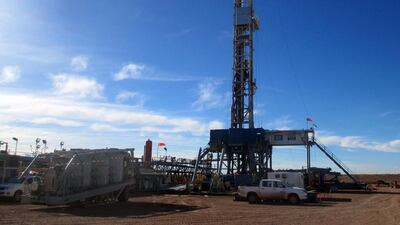Oil prices were stable on Tuesday, supported by strong consumption but weighed by ongoing high supplies from Opec members and also the United States.
Brent crude futures, the international benchmark for oil prices, were at US$48.55 per barrel at 01.30 GMT, up 13 cents, or 0.3 per cent, from their last close.
US West Texas Intermediate (WTI) crude futures were at $46.12 per barrel, up 10 cents, or 0.2 per cent.
In a sign of strong demand, data on Monday showed refineries in China increased crude throughput in June to the second highest on record.
Despite this, oil markets have struggled with oversupply since 2014, resulting in a more than 50 per cent fall in prices since then.
A deal by Opec with Russia and other non-Opec producers to cut supplies by around 1.8 million barrels per day (bpd) between January this year and March 2018 has so far not led to the tighter market and higher prices that producers have hoped for.
That is because supplies from within Opec remain high largely due to rising output from Nigeria and Libya, two Opec states exempt from the pact, and increasing US production.
Ecuador, a small producer within Opec, also said on Tuesday that it is not complying with its production cut of 26,000 bpd due to the country's fiscal deficit which is expected to hit 7.5 per cent of GDP this year.
The oil minister Carlos Perez saidEcuador was only cutting some 60 per cent of that figure, putting current output at 545,000 bpd.
"We are not meeting the quota imposed on us because of the obvious needs the country has," Mr Perez said.

